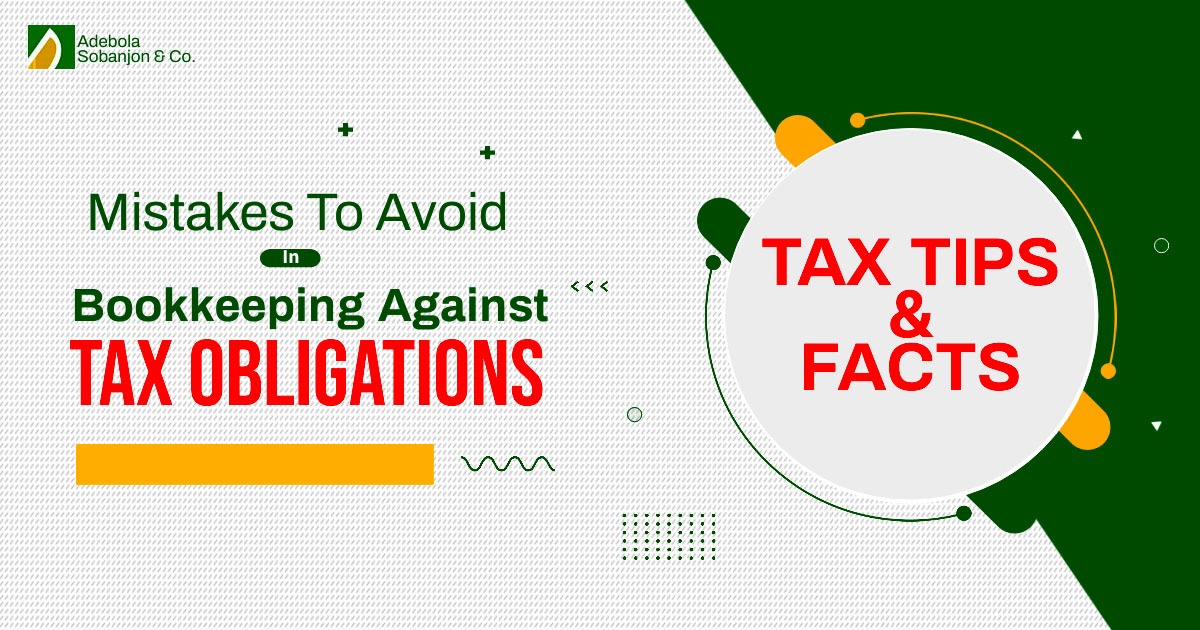
MISTAKES TO AVOID IN BOOKKEEPING AGAINST TAX OBLIGATIONS
Bookkeeping is an essential part of any business, and it involves keeping track of financial transactions, including purchases, sales, receipts, and payments. Bookkeeping helps businesses maintain accurate financial records, monitor cash flow, and prepare tax returns. However, bookkeeping can be a challenging task and mistakes can be costly.
One of the areas bookkeeping helps is in having adequate and correct figures for tax purposes. Mistakes in figures could lead to financial loss as a result of additional tax liability in future.
In this article, we’ll look at some common mistakes to avoid in bookkeeping.
- Not keeping accurate records: The most common mistake in bookkeeping is not keeping accurate records. To maintain accurate financial records, you should record all financial transactions in a timely manner, including all purchases, sales, receipts, and payments.
- Failing to reconcile accounts: Failing to reconcile accounts is another common mistake in bookkeeping. Reconciling accounts involves comparing your business’s financial records with your bank statements to ensure that they match. This process helps identify any errors or discrepancies in your financial records.
- Mixing personal and business finances: Mixing personal and business finances is a common mistake among small business owners. It can make it difficult to separate business expenses from personal expenses, which can lead to errors in your financial records and tax returns.
- Not categorizing expenses correctly: Not categorizing expenses correctly can lead to errors in financial reporting and tax returns. It’s important to categorize expenses correctly, so you can track them accurately and take advantage of tax deductions.
- Forgetting to track cash transactions: Cash transactions can be easy to forget, but they are an essential part of your financial records. It’s important to keep track of all cash transactions, including sales, expenses, and deposits.
- Not keeping receipts and invoices: Not keeping receipts and invoices is a common mistake in bookkeeping. Receipts and invoices provide evidence of your financial transactions and help support your financial records.
- Failing to backup data: Failing to backup data can lead to data loss, which can be disastrous for your business. It’s important to backup your financial data regularly to ensure that you can recover it in the event of a disaster or data loss.
In conclusion, bookkeeping is an essential part of running a successful business, and avoiding these common mistakes can help ensure that your financial records are accurate and up-to-date. By keeping accurate records, reconciling accounts, separating personal and business finances, categorizing expenses correctly, tracking cash transactions, keeping receipts and invoices, and backing up your data, you can avoid costly mistakes in bookkeeping.

